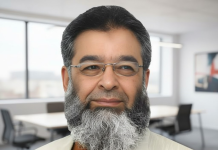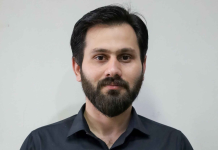by Muhammad Mohsin Iqbal
Death is a certain and inescapable truth. Every mankind on the earth have to taste it. The person who are born must one day face it. No power, no wealth, no prayer or protest can deter it when its moment arrives. It is the one fate that binds all of humanity, from kings to commoners, from the mighty to the meek. The great Sufi poet of Punjab, Mian Muhammad Bakhsh, captured this universal reality with simple yet profound words: “Dushman maray tay khushi na karye, sajna wi mar jana” — “Do not rejoice at the death of your enemy, for your beloved shall also die.” These lines echo a timeless message; that death, regardless of whose it is, is not a cause for celebration but a solemn reminder of our own mortality.
Yesterday, a most sorrowful incident occurred near the Ahmedabad airport in India. A passenger plane, carrying hundreds of souls, crashed to the ground. The destruction was vast and merciless. Not only were those aboard the aircraft lost, but several residents in nearby homes perished as well. One can only imagine the scenes of devastation; a family sitting at lunch, a child playing with toys, a man returning home from work—suddenly engulfed in fire and ruin. Some passengers may have been journeying to reunite with loved ones; others perhaps had set out to distant lands in search of opportunity and prosperity. But all, in a single, cruel moment, were silenced forever.
The grief of such an event is immense, and the pain radiates outward—to parents, spouses, children, and friends whose lives have been forever altered. No language is sufficient to express the heartbreak that now shadows the homes of the victims. And yet, as distant observers, how often do we pass over such news with little more than a sigh, unless the tragedy touches our own borders, our own people?
It is this narrowness of empathy that must be challenged. Pain is not reserved for one nation, one religion, or one race. It is the common thread that runs through all lives. If we were to imagine that the suffering of others was our own, would we not act differently? If we saw, in the faces of strangers, the reflection of our own loved ones, would we not speak out more urgently, and feel more deeply?
We live in a time where cruelty and injustice are not isolated but widespread. In many parts of the world, people live under constant threat—whether from war, persecution, or natural disaster. In Palestine, bombs rain down upon neighborhoods. Children grow up amid rubble, learning to recognize the sound of drones before they learn to read. In Kashmir, families continue to suffer under the weight of long-standing conflict and suppression. The eyes of the world often glance away, numbed by repetition or distracted by political convenience.
But should we not feel their anguish as we feel the loss of those in the plane crash? Are the tears of a mother in Gaza any less real than those of a mother in Ahmedabad? Is the grief of a father burying his son or daughter in Kashmir any less sacred than that of one burying a child in Delhi, Lahore, or London? If our answer is no—and it must be—then our hearts must remain open, and our voices must remain raised, against all forms of injustice and suffering, wherever they occur.
Humanity, at its noblest, is the ability to feel beyond oneself. It is the impulse to comfort, to protect, and to stand beside the suffering, regardless of who they are. The world is in desperate need of such humanity today. It is not enough to pray for the dead—we must strive to create a world where fewer lives are lost needlessly. That begins by condemning cruelty and lifting up compassion. Those who inflict pain on others—whether through violence, hatred, or negligence—may hold temporary power, but they will never be remembered with honour. History is not kind to the oppressor; it reserves its praise for those who heal, who serve, who speak the truth in times of silence.
In every tragedy, there is a choice to be made. We can turn away, or we can turn toward each other. We can become numb, or we can become kind. We can ignore the cries, or we can echo them until justice is done. The crash in Ahmedabad, the bombing in Gaza, the silence in Kashmir—all of these are not separate stories. They are part of one human story. A story in which we all have a role to play.
Therefore, let us strive not just to live, but to let live. Let us not only seek ease for ourselves, but create ease for others. Let us not take pride in the fall of another, but find dignity in lifting others up. In a world where death is a certainty, let our lives be marked by gentleness, not judgment; by mercy, not malice.
And when our own final moment comes, as it surely will, may it be said of us that we lived not only for ourselves, but for the good of others—that we brought light where there was darkness, and comfort where there was pain. For that, and that alone, is the true measure of a life well lived.

















